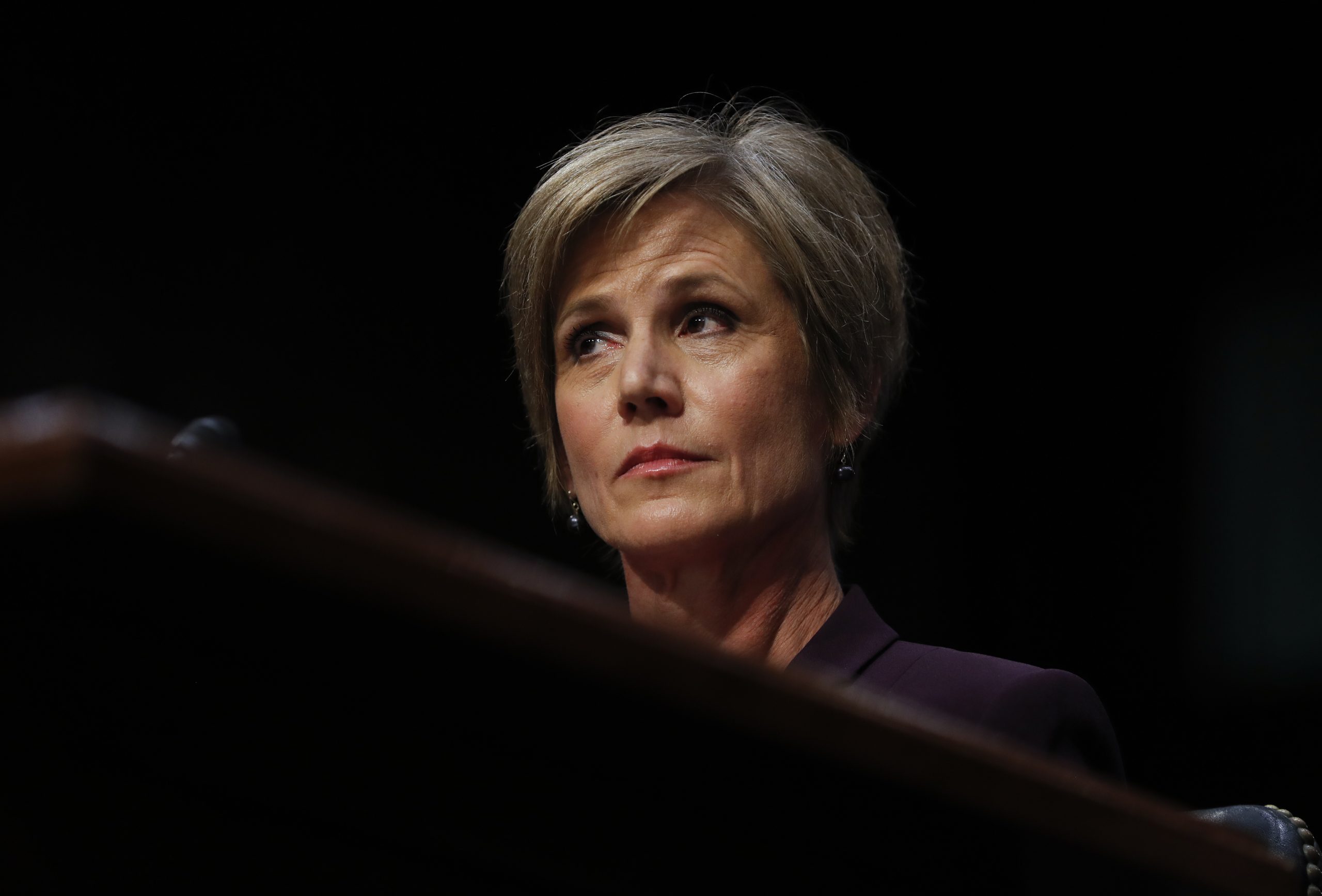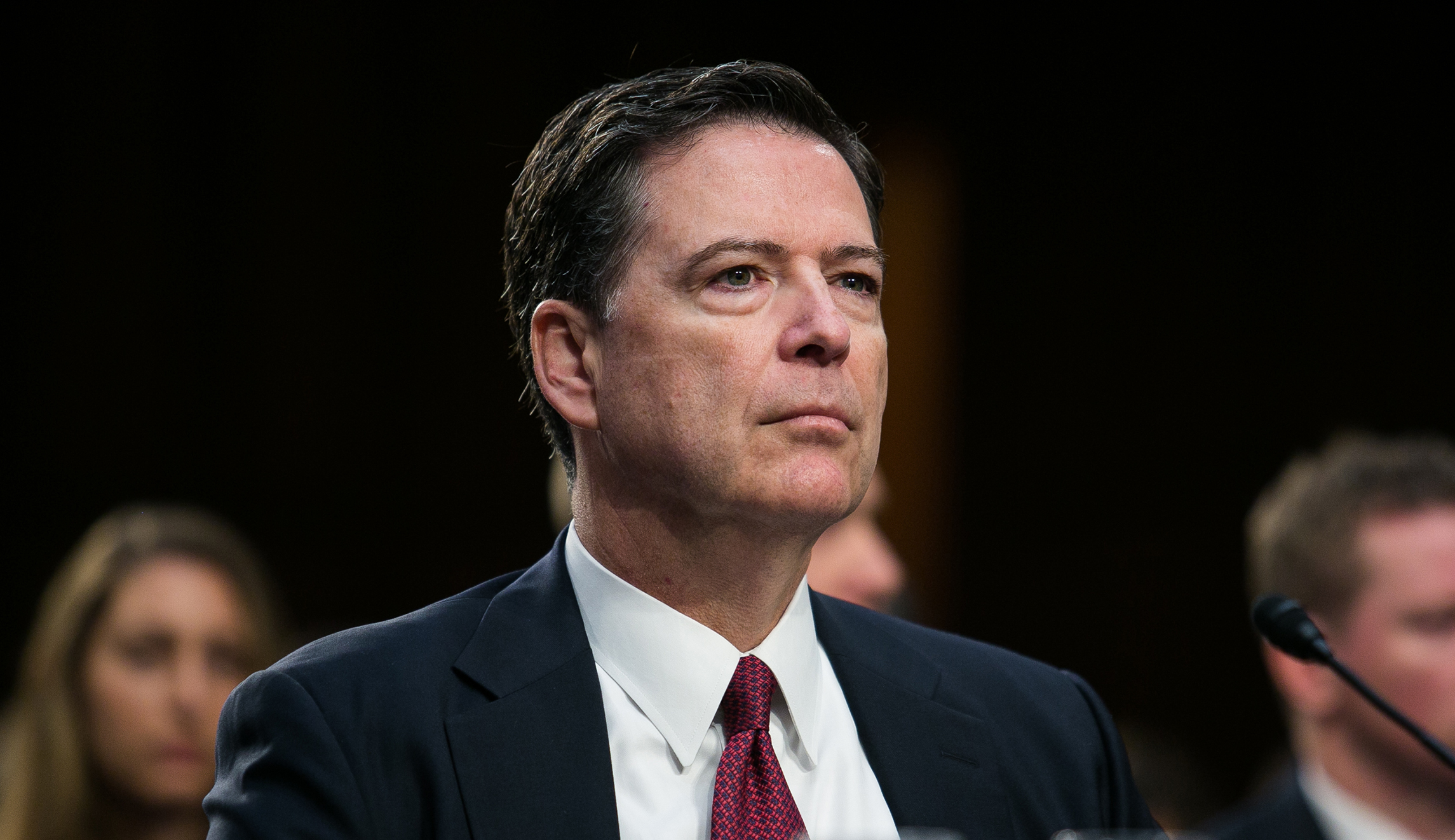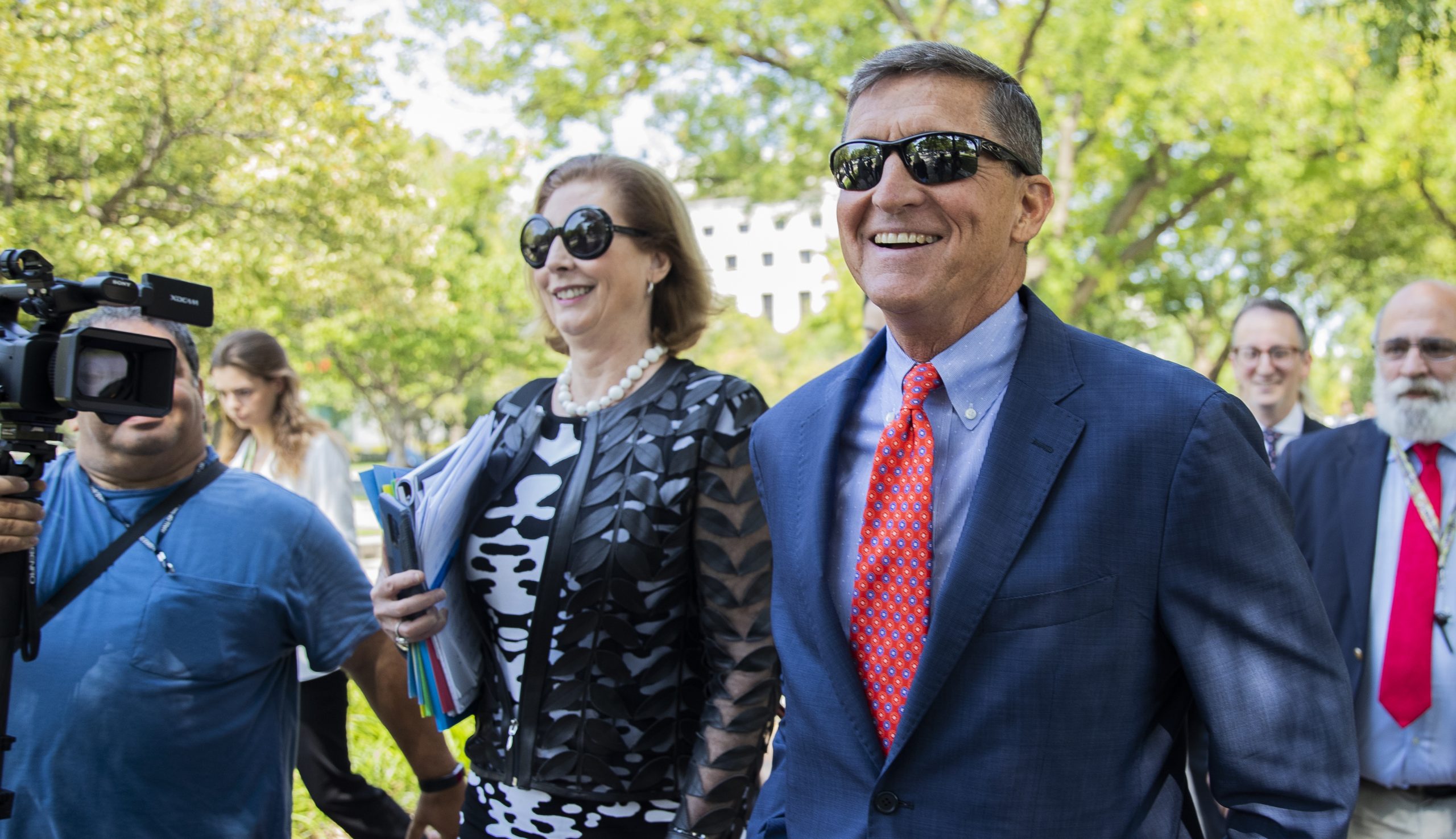Newly released documents indicate former FBI Director James Comey kept his superior at the Justice Department in the dark about the bureau’s investigation into retired Lt. Gen. Michael Flynn.
Former Deputy Attorney General Sally Yates told special counsel Robert Mueller’s team that she first learned the FBI possessed and was investigating recordings of Flynn’s late 2016 conversations with a Russian envoy following a Jan. 5, 2017, national security meeting at the White House. It wasn’t Comey who told her, but former President Barack Obama.
Yates, who was briefly the acting attorney general during the early days of the Trump administration before getting fired, also laid out how in the ensuing days, Comey kept the FBI’s actions cloaked in secrecy and repeatedly rebuffed her suggestions that the incoming Trump team be made aware of the Flynn recordings.
These revelations appear in declassified FBI interview notes of the Mueller team’s conversation with Yates in August 2017, highlighted by the Justice Department on Thursday as U.S. Attorney for D.C. Timothy Shea moved to drop its criminal charges against Flynn.
“One thing people will see when they look at the documents is how Director Comey purposely went around the Justice Department and ignored Deputy Attorney General Yates,” Attorney General William Barr said during a Thursday interview with CBS News. “Deputy Attorney General Yates, I’ve disagreed with her about a couple of things, but, you know, here she upheld the fine tradition of the Department of Justice. She said that the new administration has to be treated just like the Obama administration, and they should go and tell the White House about their findings … And, you know, Director Comey ran around that.”
Yates told Mueller’s team she first learned of the Flynn recordings following a White House meeting about the Intelligence Community Assessment attended by Yates, Comey, Vice President Joe Biden, then-CIA Director John Brennan, then-Director of National Intelligence James Clapper, then-national security adviser Susan Rice, and others. Obama asked Yates and Comey to stay behind when the meeting concluded.
Obama “started by saying that he had ‘learned of the information about Flynn’ and his conversation with Russian ambassador Sergey Kislyak,” Yates said, according to the notes. “Obama specified he did not want any additional information on the matter but was seeking information on whether the White House should be treating Flynn any differently.”

Yates told investigators that “at that point,” she “had no idea what the President was talking about.” She “recalled Comey mentioning the Logan Act” but could not remember if Comey specifically said there was an “investigation.”
“It was not clear … where the President first received the information,” Yates said, adding that she “did not recall Comey’s response to the President’s question about how to treat Flynn.” Yates told Mueller’s team, “She was so surprised by the information she was hearing that she was having a hard time processing it and listening to the conversation at the same time,” the notes said.
The Justice Department’s Thursday court filing described the ensuing clash between Comey and Yates on the question of whether to tell the incoming Trump administration that the recording of Flynn’s conversations with the Russian ambassador did not entirely square up with what Flynn had apparently told incoming Vice President Mike Pence. Comey “took the position that the FBI would not notify the incoming Trump administration of the Flynn-Kislyak communications.” Yates and other senior DOJ officials “took the contrary view and believed that the incoming administration should be notified.”
Yates told Mueller’s team about a pre-inauguration conversation about notifying the Trump team either with Comey or now-fired FBI Deputy Director Andrew McCabe and “recalled that the FBI was resistant to the idea.” She also “recalled Comey’s view was that no one really knew if the Vice President was aware of the calls,” but “the DOJ response was that they shouldn’t assume the Vice President was aware and had knowingly lied.” The FBI notes state that “in the days immediately leading up to inauguration, Yates was really pushing to notify, while Comey was still very resistant.”
Yates, who noted it was “not always clear what the FBI was doing to investigate Flynn” and whose team noted the case appeared to vacillate between being a counterintelligence investigation and a criminal investigation, told investigators she decided “enough was enough” and would tell the White House a few days after President Trump’s inauguration. On Jan. 24, 2017, Yates and her team agreed that she would inform the Trump White House about the Flynn recordings, and Yates called Comey to let him know. But when Yates spoke with Comey later that day, he “informed her that two agents were on their way to interview Mike Flynn at the White House.”

The deputy attorney general said she was “flabbergasted” and “dumbfounded,” according to the notes. Yates was “very frustrated” in the call with Comey and felt the decision should have been coordinated with the Justice Department. “You can understand why I did this,” Yates recalled Comey telling her, to which she said, “No.” Comey said he did not want the Flynn interview to “look political,” and Yates was “offended by the implication.” When she told her team what Comey’s FBI had done, Yates said that they “hit the roof.”
The Mueller team “302” interview notes are just the latest look into the deliberations behind the Flynn case. Other documents were dug up and released in recent weeks thanks to a review by U.S. Attorney Jeffrey Jensen, who was appointed to the task by Barr.
Among the Flynn records unveiled to the public were handwritten notes from former FBI Assistant Director of the Counterintelligence Division Bill Priestap on the day the FBI interviewed Flynn. “I believe we should rethink this,” Priestap wrote. “What is our goal? Truth/Admission or to get him to lie, so we can prosecute him or get him fired?”
Comey admitted in 2018 that he took advantage of the chaos in the early days of Trump’s administration when he sent FBI agent Peter Strzok and another FBI agent believed to be Joseph Pientka to talk to Flynn in January 2017.

“I sent them,” Comey said to MSNBC anchor Nicole Wallace to audience laughter. “Something I probably wouldn’t have done or maybe gotten away with in … a more organized administration. In the George W. Bush administration, for example, or the Obama administration.”
“In both of those administrations, there was process, and so if the FBI wanted to send agents into the White House itself to interview a senior official, you would work through the White House Counsel, and there’d be discussions and approvals and who would be there, and I thought, it’s early enough — let’s just send a couple guys over,” he added.
The FBI interview notes make it clear that “the interview was problematic” to Yates “because as a matter of protocol and as a courtesy, the White House Counsel’s Office should have been notified of the interview.” Yates stressed that “the FBI’s approach was inconsistent with how things had been done.”
Yates then informed Trump White House counsel Don McGahn about the recordings of Flynn and the Russian ambassador. Flynn was soon asked to resign and was swept up in Mueller’s investigation soon afterward.
The FBI records that were released over the past few weeks were touted by Flynn’s lawyer, Sidney Powell, as exculpatory evidence heretofore concealed from the defense team. They suggest that Strzok and the FBI’s “7th Floor” leadership stopped the bureau from closing its investigation into Flynn in early January 2017 after investigators had uncovered “no derogatory information” on him. Emails from later that month show Strzok, along with then-FBI lawyer Lisa Page and several others, sought out ways to continue investigating Flynn, including considering using the Logan Act.
